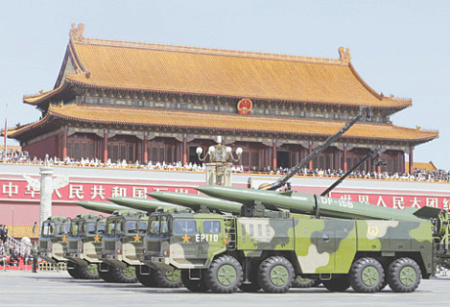
While China projects an image of unprecedented military strength, with its naval fleets patrolling global waters and its air force menacing Taiwan, a dramatic internal upheaval is shaking the People’s Liberation Army (PLA) to its core. Mao Zedong’s axiom that “power grows out of the barrel of a gun” remains a guiding principle for the ruling Communist Party, and President Xi Jinping is now tightening his grip on that power through a sweeping purge of the military’s highest echelons.
The turmoil is centered on the Central Military Commission (CMC), the supreme body through which the Party commands the armed forces, chaired by Xi himself. In an unprecedented move, several of its top members have vanished from public view, presumed to be under investigation. Among the missing are General He Weidong, a vice chairman of the CMC, and Admiral Miao Hua, who oversaw the military’s political work. Their disappearances are part of a wider anti-corruption dragnet that has ensnared at least two dozen senior officers and defense industry executives since 2023.
Unlike the politically motivated purges of history, such as Stalin’s pre-war decimation of the Red Army, the driving force behind Xi’s crackdown appears to be massive-scale corruption. The PLA’s rapid modernization, fueled by immense state funding for its navy and rocket forces, created fertile ground for embezzlement and graft. Senior commanders are accused of enriching themselves, building networks of loyal subordinates, and compromising the integrity of China’s ambitious military-industrial complex.
This internal cleansing has sparked serious concern among international observers about the PLA’s actual combat readiness. Ely Ratner, a former senior Pentagon official, suggests the purges could disrupt military operations and sow doubt within the leadership about the army’s capability to execute complex missions. As China annually adds an estimated 100 nuclear warheads to its arsenal and showcases new stealth fighters and warships, the question lingers whether this formidable hardware is managed by a competent and reliable command structure.
Analysts speculate on the timing and motivation behind Xi’s decisive action. One theory posits that he is ensuring absolute loyalty from the military as he positions himself for an unprecedented fourth term as party leader in 2027. Another, more ominous, interpretation connects the purge to the PLA’s upcoming centennial in that same year—a date Beijing has linked to achieving the “reunification” of Taiwan with the mainland. By eliminating corruption, Xi may be preparing the military for a potential high-stakes conflict.
According to experts like Vasily Kashin of Moscow’s Higher School of Economics, Xi likely perceives a growing risk of an external crisis, whether over Taiwan or in the disputed South China Sea. In this light, the anti-corruption campaign is not merely a peacetime house-cleaning exercise. It is a strategic imperative to ensure that when a crisis comes, China’s military is a disciplined, loyal, and ruthlessly effective instrument of national power, free from the rot of corruption that could lead to failure on the battlefield.
